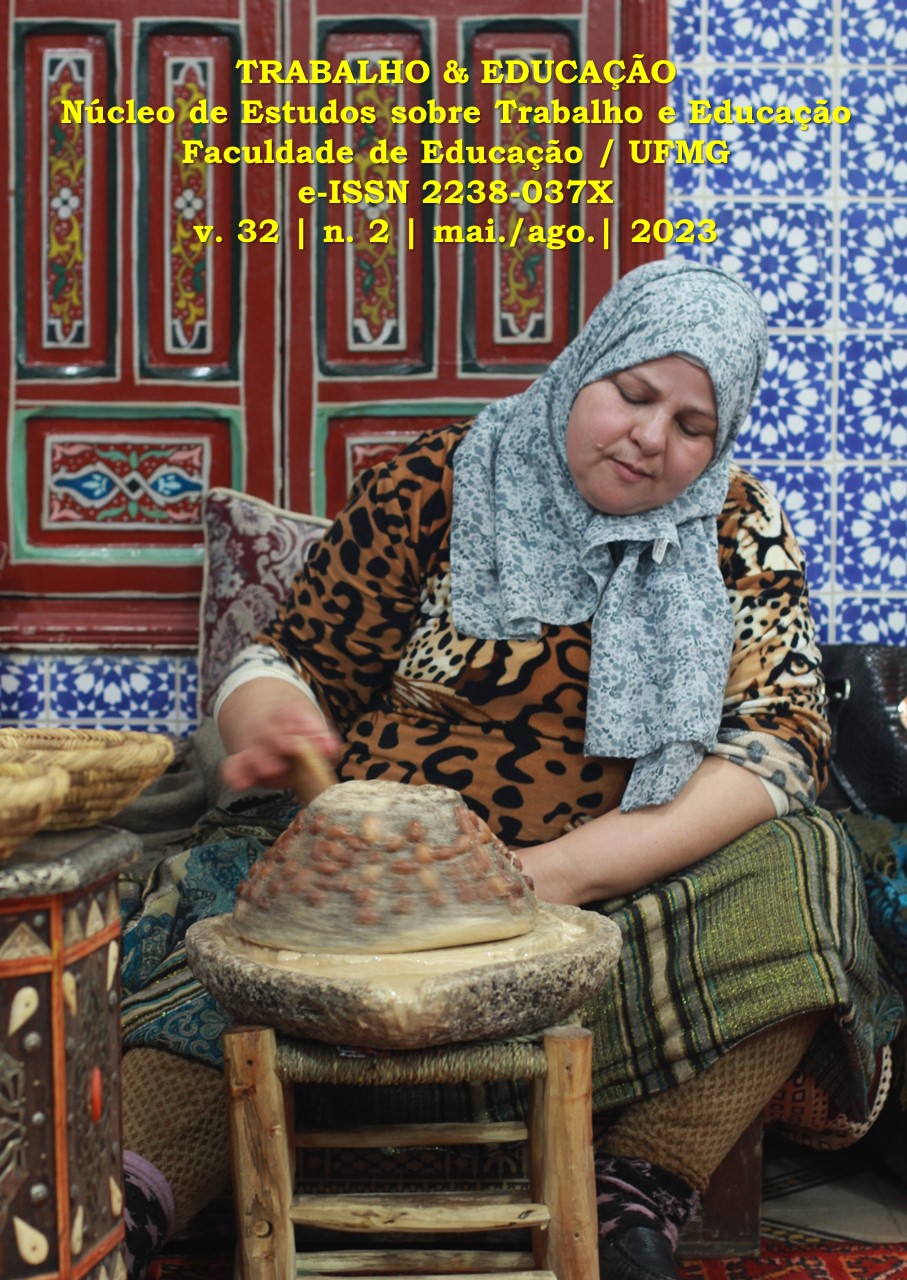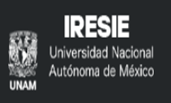A MEMÓRIA
ENTRE ADERÊNCIA E DESADERÊNCIA
DOI:
https://doi.org/10.35699/2238-037X.2023.47935Palavras-chave:
Memória de trabalho, Comunidades virtual, PluridisciplinaridadeResumo
A memória humana é um componente mobilizado universalmente em todas as formas de trabalho, enquanto permanece pouco clara ou segmentada pelas disciplinas científicas que a estudam. Esta situação pode levar a aplicações empobrecidas do conceito de memória a situações de trabalho. Propomos reunir abordagens disciplinares das ciências cognitivas e das ciências sociais para compreender melhor o funcionamento da memória, confiando na adesão ao par dialético - aderência/desaderência. Para ilustrar este exercício multidisciplinar, mobilizamos um estudo exploratório do caso dos popularizadores científicos e culturais franceses na plataforma do YouTube. Argumentamos que a memória é um espaço onde os saberes e os valores são reinterrogados nas escolhas que fazemos diariamente e projetados na situação presente e futura. São esses saberes e valores que podem, através de certas unidades e técnicas sociais e cognitivas, generalizar e definir a memória futura em nosso mundo social e digital. De modo mais geral, através deste exercício, convidamos os pesquisadores e os envolvidos em situações de trabalho a uma forma de reflexividade na ação sobre suas próprias conceptualizações.
Referências
ALLEN, M.; BROWN, S. D. Memorial meshwork: The making of the commemorative space of the Hyde Park 7/7 Memorial. Organization, [s. l.], v. 23, n. 1, p. 10–28, 2016.
ARGYRIS, C.; SCHÖN, D. A. Organizational Learning: A Theory of Action Perspective. [S. l.]: Addison-Wesley Publishing Company, 1978.
ATKINSON, R. C.; SHIFFRIN, R. M. Human Memory: A Proposed System and its Control Processes. Em: SPENCE, Kenneth W.; SPENCE, Janet Taylor (org.). Psychology of Learning and Motivation. [S. l.]: Academic Press, 1968. v. 2, p. 89–195.
AUBIN, G.; COYETTE, F. Neuropsychologie de la mémoire de travail. Marseille: Solal, 2007. 2007.(Neuropsychologie).
BADDELEY, A. Working Memory: Theories, Models, and Controversies. Annual Review of Psychology, [s. l.], v. 63, n. 1, p. 1–29, 2012.
BADDELEY, A. D.; HITCH, G. Working Memory. Psychology of Learning and Motivation, [s. l.], v. 8, p. 47–89, 1974.
BADDELEY, A. D.; HITCH, G. J.; ALLEN, R. J. From short-term store to multicomponent working memory: The role of the modal model. Memory & Cognition, [s. l.], v. 47, n. 4, p. 575–588, 2019.
BERTHOZ, A. La décision. Paris, France: Odile Jacob, 2003.
BLOCH, M. L’Anthropologie et le Défi cognitif. Odile Jacobed. Paris, France: [s. n.], 2013. (Travaux du Collège de France).
BOLTANSKI, L.; THÉVENOT, L. De la justification : les economies de la grandeur. [S. l.]: Gallimard, 1991.
CANGUILHEM, G. Le normal et le pathologique. Paris, France: Presses universitaires de France, 1966.
CASEY, A. Organizational Identity and Memory: A Multidisciplinary Approach. New York: Routledge, 2018.
CHAN, T.; WANG, I.; YBARRA, O. Leading and Managing the Workplace: The Role of Executive Functions. Academy of Management Perspectives, [s. l.], v. 35, n. 1, p. 142–164, 2021.
CHIAPELLO, E.; BOLTANSKI, L. Le nouvel esprit du capitalisme. Gallimarded. Paris: HAL, 1999. 1999.
COOLIDGE, F. L. The enhanced working memory model: Its origin and development. Em: SQUEEZING MINDS FROM STONES: COGNITIVE ARCHAEOLOGY & THE EVOLUTION OF THE HUMAN MIND. New York, NY, US: Oxford University Press, 2019. p. 406–431.
CORDIER FRANÇOISE; GAONAC’H DANIEL. Apprentissage et mémoire. Paris: Armand Colin, 2007. 2007.(128 Psychologie Psychanalyse).
CORTÉS PASCUAL, A.; MOYANO MUÑOZ, N.; QUÍLEZ ROBRES, A. The Relationship Between Executive Functions and Academic Performance in Primary Education: Review and Meta-Analysis. Frontiers in Psychology, [s. l.], v. 10, 2019.
COWAN, N. Working memory development: A 50-year assessment of research and underlying theories. Cognition, [s. l.], v. 224, p. 105075, 2022.
DAMASIO, A. R. L’ Autre moi-même : les nouvelles cartes du cerveau, de la conscience et des émotions / Antonio Damasio. [S. l.]: O. Jacob. Paris, 2010.
D’ANDRADE, R. G. The development of cognitive anthropology. New York, NY, US: Cambridge University Press, 1995. 1995.(The development of cognitive anthropology). p. xiv, 272.
DEHAENE, S. Le code de la conscience. [S. l.]: Odile Jacob, 2014. 2014.
DHOLAKIA, U. M.; BAGOZZI, R. P.; PEARO, L. K. A social influence model of consumer participation in network- and small-group-based virtual communities. International Journal of Research in Marketing, [s. l.], v. 21, n. 3, p. 241–263, 2004.
DI RUZZA, R.; SCHWARTZ, Y. Agir humain et production de connaissances. [S. l.]: Presses Universitaires de Provence, 2021. (Episteme).
DORTIER, J.-F. L’Homme cet étrange animal. Sciences humainesed. Paris: [s. n.], 2004.
DURRIVE LOUIS. L’expérience des normes: comprendre l’activité humaine avec la démarche ergologique. Toulouse: Octarès éditions, 2015. 2015.(Collection Travail & activité humaine).
EISENMAN, M.; FRENKEL, M. Remembering Materiality: A Material–Relational Approach to Organizational Memory. Organization Theory, [s. l.], 2021.
ERICSSON, K. A.; KINTSCH, W. Long-term working memory. Psychological Review, USv. 102, p. 211–245, 1995.
ESMAILY, A.; JAMBARSANG, S.; MOHAMMADIAN, F.; MEHRPARVAR, A. H. Effect of shift work on working memory, attention and response time in nurses. International Journal of Occupational Safety and Ergonomics, [s. l.], v. 28, n. 2, p. 1085–1090, 2022.
FEENBERG, A. Tecnologia, modernidade e democracia. [S. l.]: Inovatec Press, 2018. 2018.
FOURCADE, M.; HEALY, K. Seeing Like a Market. Escholarship, University of California, 2017.
GREEN, Joshua. B.; BURGESS, J. YouTube: Online Video and Participatory Culture. John Wiley&Sonsed. New Jersey: [s. n.], 2009.
GROSJEAN, S.; BONNEVILLE, L. Saisir le processus de remémoration organisationnelle. Revue d’anthropologie des connaissances, [s. l.], v. 3, n. 2, 2009.
HALBWACHS, M. La Mémoire collective | Éditions Albin Michel. Albin Micheled. Paris: [s. n.], 1950.
HOFSTEDE, G. Culture and Organizations. International Studies of Management & Organization, [s. l.], v. 10, n. 4, p. 15–41, 1980.
HOLFORD, W. D. Chapter 5: Human Cognition and Behavior: A Computational and Representational Decision-Making Perspective. Em: HUMAN ENACTMENT OF INTELLIGENT TECHNOLOGIES: TOWARDS MÈTIS AND MINDFULNESS. World Scientific Publishing Coed. [S. l.: s. n.], 2021. p. 57–78.
HOUDÉ, O.; KAYSER, D.; KOENIG, O.; PROUST, J.; RASTIER, F. Vocabulaire de sciences cognitives : neuroscience, psychologie, intelligence artificielle, linguistique et philosophie. Presses universitaires de Franceed. Paris: [s. n.], 1998. 1998.(Psychologie et sciences de la pensée).
KELLOGG, K. C.; VALENTINE, M. A.; CHRISTIN, A. Algorithms at Work: The New Contested Terrain of Control. Academy of Management Annals, [s. l.], v. 14, n. 1, p. 366–410, 2020.
KOLKOWSKA, E.; KARLSSON, F.; HEDSTRÖM, K. Towards analysing the rationale of information security non-compliance: Devising a Value-Based Compliance analysis method. The Journal of Strategic Information Systems, [s. l.], v. 26, n. 1, p. 39–57, 2017.
LEIDNER, D. E.; KAYWORTH, T. Review: A Review of Culture in Information Systems Research: Toward a Theory of Information Technology Culture Conflict. MIS Quarterly, [s. l.], v. 30, n. 2, p. 357–399, 2006.
LEROI-GOURHAN, A. Le geste et la parole : la mémoire et les rythmes : volume 2. Paris: Albin Michel, 1998. 1998.(, v. VOLUME 2).
MIYAKE, A.; SHAH, P. Models of working memory: Mechanisms of active maintenance and executive control. New York, NY, US: Cambridge University Press, 1999. 1999.(Models of working memory: Mechanisms of active maintenance and executive control). p. xx, 506.
PARAPONARIS, C. Le passage des frontières : difficultés et perspectives. L’expérience des frontières cognitives. [S. l.]: Presses Universitaires de Provence, 2017. 2017.p. 89.
POITOU, J.-P. Des techniques de gestion des connaissances à l’anthropologie des connaissances. Revue d’anthropologie des connaissances, Grenoblev. 1, 1, n. 1, p. 11–34, 2007.
ROWLINSON, M.; BOOTH, C.; CLARK, P.; DELAHAYE, A.; PROCTER, S. Social Remembering and Organizational Memory. Organization Studies, [s. l.], 2010.
SCHWARTZ, Y. Le paradigme ergologique ou un métier de philosophe. Première édition, ed. Toulouse: Octarès Editions, 2000. 2000.(Travail et activité humaine).
SCHWARTZ, Y. Travail, ergologie et politique. [S. l.]: Dispute (La), 2021. 2021.
SCHWARTZ, Y.; DURRIVE, L. Entretiens sur l’activité humaine, 2. L’Activité en Dialogues : [suivi de] Manifeste pour un ergo-engagement. 1ère éditioned. Toulouse: Octarès Editions, 2009. 2009.(Travail et activité humaine).
SCHWARTZ, Y.; DURRIVE, L. Travail et Ergologie - Entretiens sur l’activité humaine (1). Toulouse: Octares Editions, 2003. 2003. Disponível em: https://www.octares.com/travail-et-activite-humaine/33-travail-et-ergologie-entretiens-sur-l-activite-humaine-1.html. Acesso em: 20 fev. 2023.
SCHWARTZ, Y.; ECHTERNACHT, E. Le corps-soi dans les milieux de travail. Corps, [s. l.], n. n°6, p. 31–37, 2009.
WALSH, J. P.; UNGSON, G. R. Organizational memory. Academy of Management Review, [s. l.], v. 16, n. 1, p. 57–91, 1991.
WASKO, J.; ERICSON, M. The Political Economy of YouTube. Em: SNICKARS, Pelle; VONDREAU, Patrick (ed.). The YouTube Reader. Wallflower Press.ed. New York, NY, US: [s. n.], 2009. p. 372–386.
WEICK, K. E. Sensemaking in Organizations. [S. l.]: SAGE, 1995. 1995.
WEILL-FASSINA, A.; RABARDEL, P.; DUBOIS, D. Représentations pour l’action. première éditioned. Toulouse: Octarès Editions, 1993. 1993.(Travail).
WEINBERGER, E.; WACH, D.; STEPHAN, U.; WEGGE, J. Having a creative day: Understanding entrepreneurs’ daily idea generation through a recovery lens. Journal of Business Venturing, [s. l.], v. 33, n. 1, p. 1–19, 2018.
Downloads
Publicado
Edição
Seção
Licença
Copyright (c) 2023 Trabalho & Educação

Este trabalho está licenciado sob uma licença Creative Commons Attribution 4.0 International License. Os autores têm autorização para assumir contratos adicionais separadamente, para distribuição não-exclusiva da versão do trabalho publicada nesta revista (ex.: publicar em repositório institucional ou como capítulo de livro), com reconhecimento de autoria e publicação inicial nesta revista.













